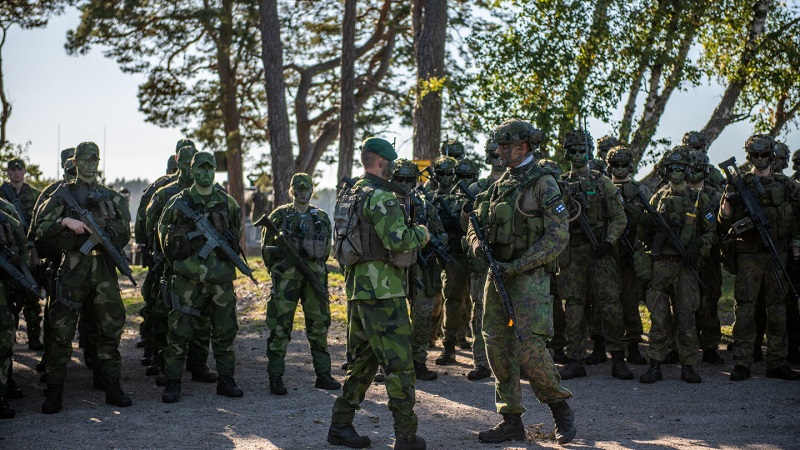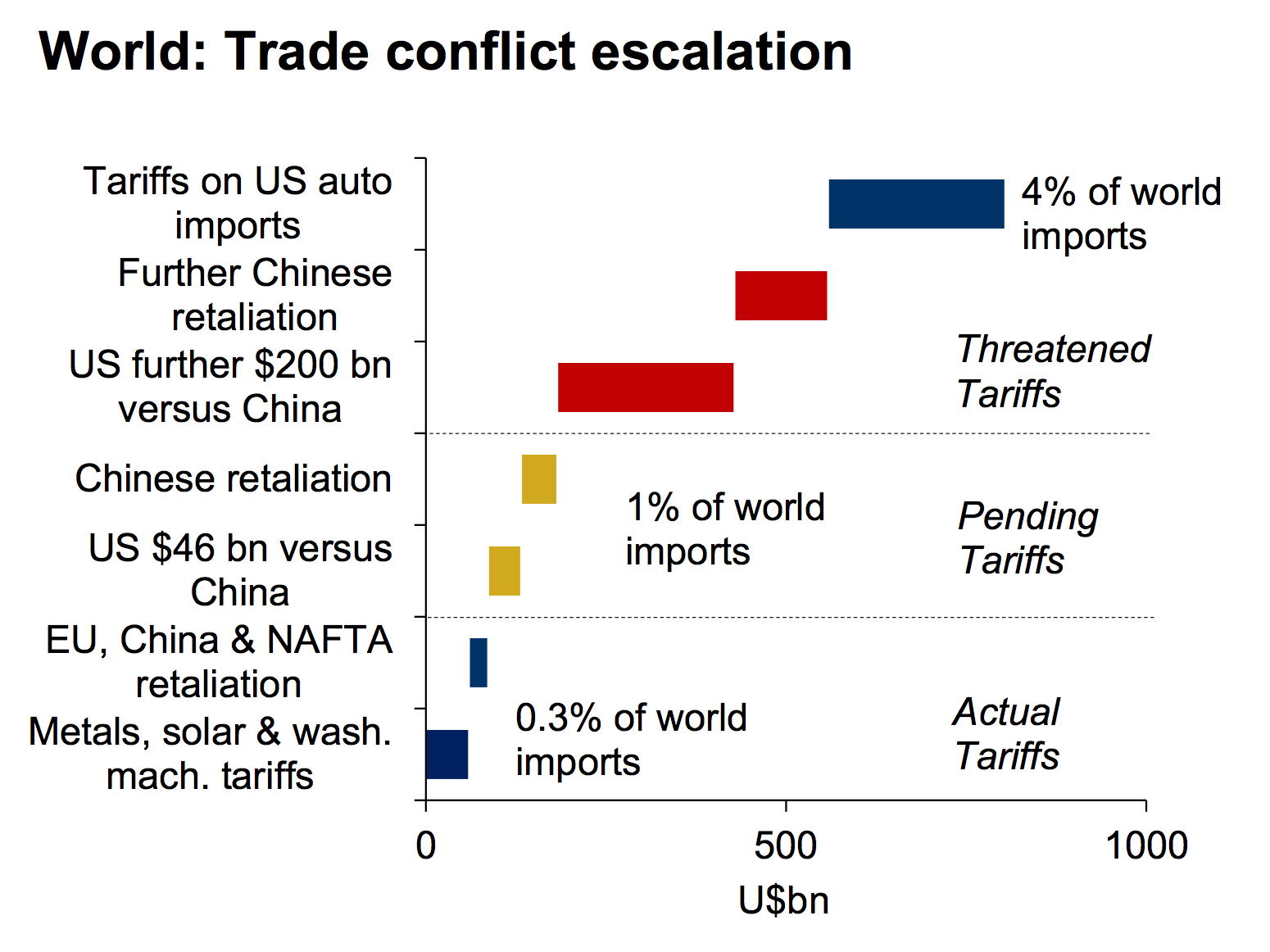The Future Of Nordic Security: A Collaborative Approach By Sweden And Finland

Table of Contents
The Geopolitical Context Driving Collaboration
The Baltic Sea region is experiencing a period of heightened geopolitical tension. Russia's increased military activity, including aggressive naval exercises and territorial incursions, has profoundly impacted Sweden and Finland's security perceptions. The 2022 Russian invasion of Ukraine served as a stark wake-up call, dramatically altering the risk assessment for both countries and accelerating their pursuit of enhanced security cooperation. This shift in perception led to both nations abandoning their long-held policies of military non-alignment, culminating in their applications to join NATO. This membership, while significantly bolstering their individual security, also greatly enhances their bilateral cooperation.
- Rising tensions in the Baltic Sea region: The militarization of the Kaliningrad Oblast and increased Russian naval presence directly threaten regional stability.
- The impact of the war in Ukraine on Nordic security: The war highlighted the vulnerability of even seemingly remote nations to large-scale aggression and the importance of collective defense.
- Increased defense spending in Sweden and Finland: Both countries have significantly increased their defense budgets to modernize their armed forces and strengthen their defensive capabilities.
- Shifting public opinion towards closer defense cooperation: Public support for increased military spending and closer defense ties with neighboring countries, particularly Finland, has risen significantly in Sweden.
Enhanced Military Cooperation Between Sweden and Finland
The deepening partnership between Sweden and Finland is manifested in concrete terms through enhanced military cooperation. This includes significantly increased joint military exercises, focused on combined operations and interoperability. Information sharing on intelligence gathering and threat assessments has also improved dramatically. Furthermore, both countries are exploring opportunities for joint procurement of defense equipment and resources, aiming for economies of scale and enhanced interoperability of their armed forces. The development of compatible military doctrines and strategies is another key element of this enhanced cooperation.
- Joint military exercises: Exercises like Aurora and other bilateral training events are increasing in frequency and scope, focusing on combined air, land, and naval operations.
- Shared intelligence gathering and analysis: Intelligence sharing enhances situational awareness and enables a more effective response to potential threats.
- Coordinated air defense systems: Closer collaboration on air defense systems improves overall regional air security.
- Collaboration in cyber security: Joint efforts to combat cyber threats are crucial in the face of increasing sophisticated cyber warfare capabilities.
Strengthening Civil Preparedness and Resilience
National security is not solely a military concern; it also encompasses civil preparedness and resilience. Sweden and Finland recognize the importance of strengthening civilian resilience to various threats, from natural disasters to hybrid warfare. This includes joint efforts in areas like disaster response, critical infrastructure protection, and cybersecurity. Cooperation in countering disinformation campaigns and other aspects of hybrid warfare is also a priority. Public awareness campaigns educating citizens about national security threats and preparedness measures are also becoming more common.
- Joint emergency response planning: Coordinating emergency response plans ensures a more effective response to crises.
- Information sharing on cyber threats: Sharing information on cyber threats allows for a more coordinated and effective defense against cyberattacks.
- Collaboration on countering disinformation campaigns: Joint efforts are crucial to combat the spread of disinformation and propaganda.
- Public awareness campaigns on national security: Educating the public builds resilience and strengthens overall national security.
The Role of the EU and NATO in Nordic Security
Finland's accession to NATO, followed by Sweden's ongoing application process, significantly impacts Nordic security and the bilateral relationship between Sweden and Finland. NATO membership opens up opportunities for enhanced collaboration within the alliance framework, including increased intelligence sharing, enhanced interoperability of armed forces, and participation in joint military operations. Similarly, both countries leverage their EU membership for collaborative efforts in defense procurement and other security-related initiatives. However, integrating national security strategies within these larger frameworks presents challenges, requiring careful coordination and consideration of national interests.
- Enhanced intelligence sharing through NATO channels: NATO's intelligence sharing mechanisms provide a significant advantage in threat assessment and response.
- Increased interoperability of armed forces within the EU framework: EU initiatives promote standardization and interoperability, which benefits joint operations.
- Cooperation on defense procurement through EU initiatives: EU-level procurement can offer economies of scale and improved interoperability.
- Potential for joint military operations under EU or NATO command: This enhances regional collective defense capabilities.
Conclusion
The future of Nordic security hinges on the continued strengthening of collaborative efforts between Sweden and Finland. Their enhanced military cooperation, coupled with a focus on civil preparedness and integration within the EU and NATO frameworks, creates a more robust and resilient region. Understanding the complexities of the evolving geopolitical landscape and actively participating in discussions about Nordic security is crucial for maintaining peace and stability in the region. To stay informed on the latest developments in Nordic security, continue following news and analysis from reputable sources.

Featured Posts
-
 Trumps Trade War A Threat To Us Financial Leadership
Apr 22, 2025
Trumps Trade War A Threat To Us Financial Leadership
Apr 22, 2025 -
 Trumps Obamacare Defense A Supreme Court Showdown With Implications For Rfk Jr
Apr 22, 2025
Trumps Obamacare Defense A Supreme Court Showdown With Implications For Rfk Jr
Apr 22, 2025 -
 The Future Of The Catholic Church Pope Francis Legacy And The Election Of His Successor
Apr 22, 2025
The Future Of The Catholic Church Pope Francis Legacy And The Election Of His Successor
Apr 22, 2025 -
 500 Million Bread Price Fixing Settlement Canadian Hearing Set For May
Apr 22, 2025
500 Million Bread Price Fixing Settlement Canadian Hearing Set For May
Apr 22, 2025 -
 Investment Opportunities Mapping The Countrys New Business Hotspots
Apr 22, 2025
Investment Opportunities Mapping The Countrys New Business Hotspots
Apr 22, 2025
